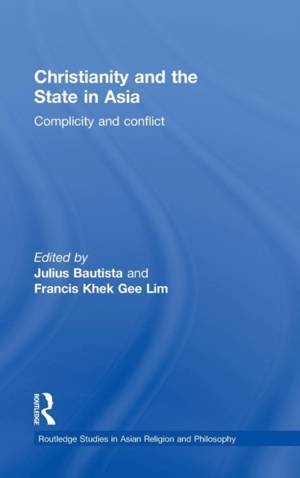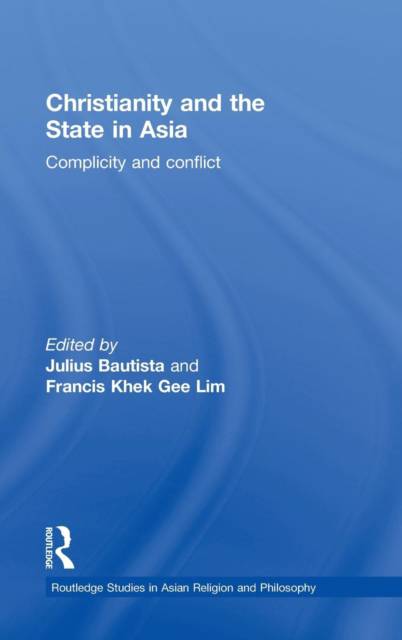
- Retrait gratuit dans votre magasin Club
- 7.000.000 titres dans notre catalogue
- Payer en toute sécurité
- Toujours un magasin près de chez vous
- Retrait gratuit dans votre magasin Club
- 7.000.0000 titres dans notre catalogue
- Payer en toute sécurité
- Toujours un magasin près de chez vous
Christianity and the State in Asia
Complicity and Conflict
Description
Christianity is one of the most rapidly growing religions in Asia. Despite the challenges of political marginalisation, church organisations throughout much of Asia are engaged in activities - such as charity, education and commentary on public morality - that may either converge or conflict with the state's interests. Considering Christianity's growing prominence, and the various ways Asian nation states respond to this growth, this book brings into sharper analytical focus the ways in which the faith is articulated at the local, regional, and global level.
Contributors from diverse disciplinary and institutional backgrounds offer in-depth analyses of the complex interactions between Asian nation-states and Christianity in the context of modernisation and nation-building. Exploring the social and political ramifications of Christian conversions in Asia and their impact on state policies, the book analyses how Christian followers, missionaries, theologians and activists negotiate their public roles and identities vis-à-vis various forms of Asian states, particularly in the context of post-colonial nation-building and socio-economic development.
This volume represents a critical contribution to the existing scholarship on Christianity's global reach and its local manifestations, and demonstrates the significance of the Asian experience in our understanding of Christianity as a global religion.
Spécifications
Parties prenantes
- Editeur:
Contenu
- Nombre de pages :
- 232
- Langue:
- Anglais
- Collection :
- Tome:
- n° 4
Caractéristiques
- EAN:
- 9780415480697
- Date de parution :
- 03-07-09
- Format:
- Livre relié
- Format numérique:
- Genaaid
- Dimensions :
- 156 mm x 234 mm
- Poids :
- 503 g

Les avis
Nous publions uniquement les avis qui respectent les conditions requises. Consultez nos conditions pour les avis.





